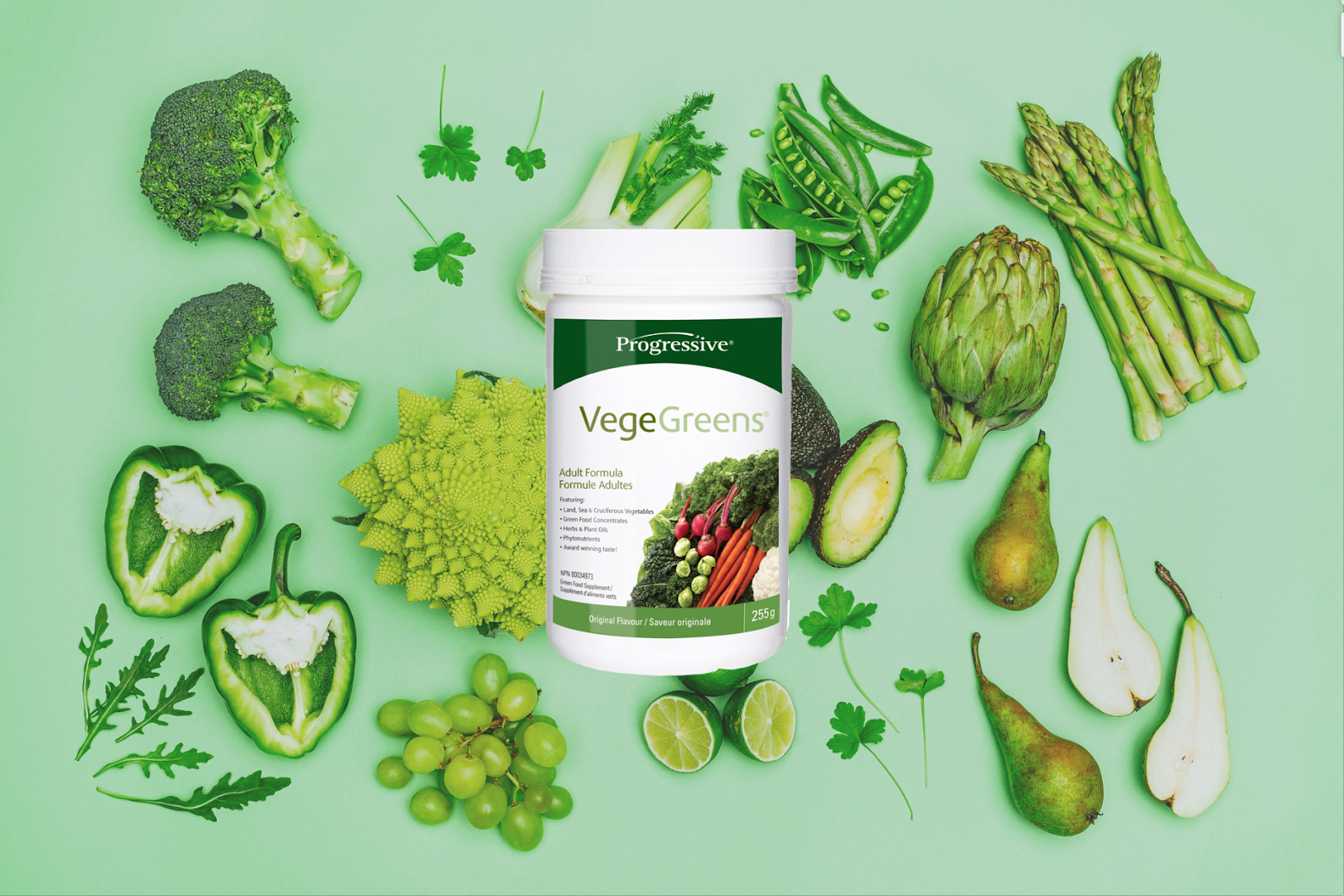
Nutrient efficiency
VegeGreens isn't claiming that it can replace vegetables altogether (check out the article If VegeGreens Don't Replace Veggies, What Do They Do? ), it's just more efficient than starting your day with a big salad. A big salad complete with an array of plant oils, greens food, land vegetables, sea vegetables, cruciferous vegetables, phytonutrients, herbs, and botanicals. With so many nutrients it's hard to list all the benefits! 1

Greens Are Great But So Are Other Colours
VegeGreens includes green food concentrates such as barley grass, organic alfalfa, wheatgrass, spinach, parsley and dandelion but it also includes land vegetables such as beetroot and carrots. This means not only greens but bright red and orange nutrients too! Because even though it is recommended to eat a ''rainbow' of fruits and vegetables ''few Canadians consume a full serving of dark green or orange vegetables daily''. 2
Health Benefits Of Cruciferous Vegetables Without The Unpleasant Smell Or Taste!
VegeGreens also includes broccoli, cauliflower, Brussels sprouts, kale and watercress. They are termed cruciferous vegetables and are unique in that not only do they provide vitamins and minerals but they are also a rich source of sulfur-containing compounds called glucosinolates . Glucosinolate is what gives these vegetables their very pungent smell, bitter taste and why many people hate eating vegetables. Yet it is also what makes these very special vegetables nutritional powerhouses. They play very important roles in disease prevention by triggering the antioxidant and anti-inflammatory responses within our body, as well as working to maintain our cellular homeostasis. 3 Unfortunately, because of their smell and taste many people avoid these amazing vegetables. By putting them into a powder form, VegeGreens allows even those who find Brussels sprouts revolting, to enjoy their health benefits.
But don't take our word for it! Take our 8-week VegeGreens challenge and taste the difference for yourself! (Click "get the detail" for, well, the details).
_____________________________
1 Zeinalian, R. et al. (2017). The effects of Spirulina Platensis on anthropometric indices, appetite, lipid profile and serum vascular endothelial growth factor (VEGF) in obese individuals: a randomized double blinded placebo controlled trial. BMC Complementary and Alternative Medicine. Apr 21 ;17(1):225.
2 Black, Jennifer & Billette, Jean-Michel (2013). Do Canadians meet Canada's Food Guide's recommendations for fruits and vegetables? Applied Physiology, Nutrition & Metabolism. 38 (3): 234-242.
3 Higdon, Jane. Cruciferous Vegetables. Micronutrient Information Centre, Linus Pauling Institute at Oregon State University. Retrieved on April 4, 2018 from: http://lpi.oregonstate.edu/mic/food-beverages/cruciferous-vegetables


